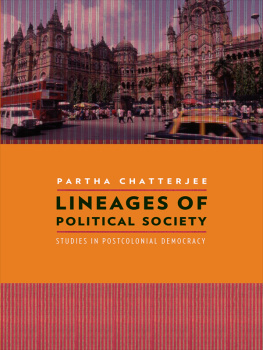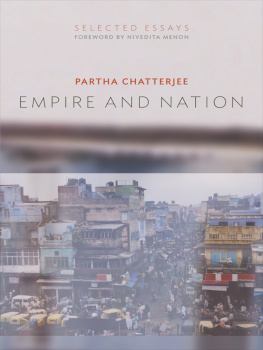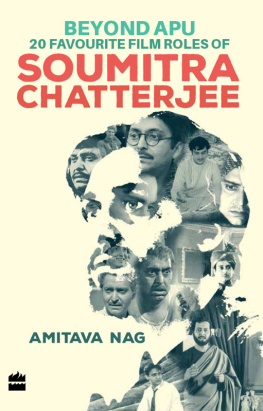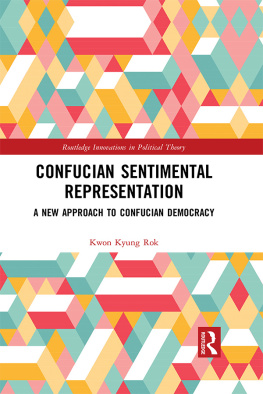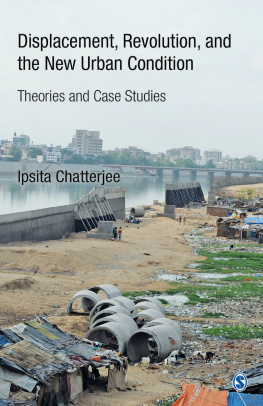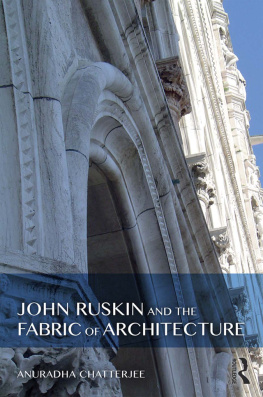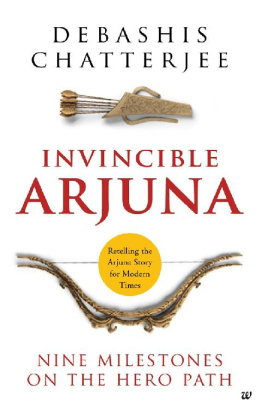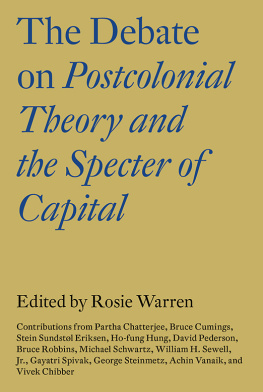LINEAGES OF POLITICAL SOCIETY
CULTURES OF HISTORY
CULTURES OF HISTORY
Nicholas Dirks, Series Editor
The death of history, reported at the end of the twentieth century, was clearly premature. It has become a hotly contested battleground in struggles over identity, citizenship, and claims of recognition and rights. Each new national history proclaims itself as ancient and universal, while the contingent character of its focus raises questions about the universality and objectivity of any historical tradition. Globalization and the American hegemony have created cultural, social, local, and national backlashes. Cultures of History is a new series of books that investigates the forms, understandings, genres, and histories of history, taking history as the primary text of modern life and the foundational basis for state, society, and nation.
Shail Mayaram, Against History, Against State: Counterperspectives from the Margins
Tapati Guha-Thakurta, Monuments, Objects, Histories: Institutions of Art in Colonial and Postcolonial India
Charles Hirschkind, The Ethical Soundscape: Cassette Sermons and Islamic Counterpublics
Ahmad H. Sadi and Lila Abu-Lughod, editors, Nakba: Palestine, 1948, and the Claims of Memory
Prachi Deshpande, Creative Pasts: Historical Memory and Identity in Western India, 17001960
Todd Presner, Mobile Modernity: Germans, Jews, Trains
Laura Bear, Lines of the Nation: Indian Railway Workers, Bureaucracy, and the Intimate Historical Self
Vazira Fazila-Yacoobali Zamindar, The Long Partition and the Making of Modern South Asia: Refugees, Boundaries, Histories
Bernard Bate, Tamil Oratory and the Dravidian Aesthetic: Democratic Practice in South India
Lineages of
Political Society
Studies in Postcolonial Democracy
PARTHA CHATTERJEE
Columbia University Press New York

Columbia University Press
Publishers Since 1893
New York Chichester, West Sussex
cup.columbia.edu
Copyright 2011 Columbia University Press
All rights reserved
E-ISBN 978-0-231-52791-0
Library of Congress Cataloging-in-Publication Data
Chatterjee, Partha, 1947 Lineages of political society :
studies in post-colonial democracy / Partha Chatterjee. p. cm.
(Cultures of history) Includes bibliographical references and index.
ISBN 978-0-231-15812-1 (cloth : alk. paper)
ISBN 978-0-231-15813-8 (pbk. : alk. paper)
ISBN 978-0-231-52791-0 (ebook)
1. DemocracyIndiaHistory. 2. DemocracyPhilosophy.
3. PostcolonialismIndia. I. Title. II. Series.
JQ281.C47 2011
325'.3--dc23
2011032753
A Columbia University Press E-book.
CUP would be pleased to hear about your reading experience with this e-book at .
References to Internet Web sites (URLs) were accurate at the time of writing. Neither the author nor Columbia University Press is responsible for URLs that may have expired or changed since the manuscript was prepared.
To
ANJAN GHOSH
(19512010)
my comrade in many battles
Contents
E ver since The Politics of the Governed was published in 2004, my idea of political society has elicited much comment and discussion, some appreciative and a lot of it quite critical. The spread and intensity of the response has persuaded me that, regardless of my success or failure in explaining the phenomenon, I have been able to point to a problem that is exercising the minds of many, not only in India but in diverse countries of the world. Simply put, the problem is that democracy, perhaps in most of the present-day world, cannot be brought into being, or even fought for, in the image of Western democracy as it exists today. It is not just that existent democracies in Western Europe and North America (or in the white settler colonies of Australia and New Zealand) are all imperfect actualizations of the true normative ideal of democracy (it doesnt matter for my argument if one decides like a Platonist that the ideal is unachievable in the real world of human beings or if one prefers the Enlightenment view of the infinite perfectibility of Western man). Thus, it is not as though, irrespective of the imperfections of Western democracies, the normative model itself remains universally valid and should be regarded as a beacon for aspiring democrats around the world. Rather, the problem is that the experience of postcolonial democracy is showing every day that those norms themselves must be rethought.
This volume attempts to use the rapidly accumulating empirical evidence on the experience of postcolonial democracy to question the normative status of liberal democratic theory as it exists today. However, I must be clear about the very modest claims of this book. It does not offer an alternative normative model of the future political order. It is self-consciously realist and not utopian. Most of the time, it tries to understand the new practices of postcolonial democracythose that were never experienced in the history of the modern state in the Westand conceptualize them in their difference from normative liberal theory. The paths to our normative future, I believe, will diverge from those taken in the past, but their direction remains uncertain and open. What this book shuns, however, is the preformed judgement that is to say, the prejudicethat such difference is always the sign of philosophical immaturity and cultural backwardness.
I have discussed various parts of this book at numerous formal and informal meetings in many places, and I regret that it is not possible to individually acknowledge my debt to all my interlocutors. However, I should mention at least the following occasions when I presented drafts of specific chapters of this book: the workshop on Postcolonial and Subaltern Studies at the Instituto de Estudios Peruanos, Lima, Peru, and on Postcolonial Transformations at the Universidad Central de Venezuela at Caracas, Venezuela, in May 2006; the Crossroads Conference of the International Cultural Studies Association at Istanbul in July 2006; the two conferences on Subaltern Citizens at Emory University, Atlanta, in 2006 and 2007; the Asian International Cultural Studies Conference at Shanghai University in June 2007; the conference on The Great Transformation: Indian Political Economy at Columbia University in September 2007; the workshop on Democracy in India and Beyond at the University of Pennsylvania, Philadelphia, in October 2007; the two conferences in 2008 (in Berlin) and 2010 (in Calcutta) on The Rule of Law and Democracy in Europe and India organized by the Europe-India Advanced Research Network; the conference on Postcolonial Democracy at the New School for Social Research, New York, in April 2009; the discussions that followed my lectures at Bogazii University at Istanbul, the Delhi School of Economics, Yale University, the Madras Institute of Development Studies, the Graduate Centre of International Studies at Geneva, the Department of Politics at the University of Oxford, the Centre for the Study of Society and Culture at Bangalore, the Graduate Center of the City University of New York, and the University of Michigan; and, finally, the intensive and invigorating workshop on my writings held at the Centre for Political Studies, Jawaharlal Nehru University, New Delhi, in March 2010.
Sections of some of the chapters of this book were published earlier as articles in English and Bengali. An earlier version of Chapter Two was published in the Economic and Political Weekly, 33, 22 (May 30, 1998); Chapter Three and sections of Chapter Five were published in my Bengali book Praj o tantra (2006); parts of Chapter Four were published in Timothy Mitchell, ed.,
Next page
